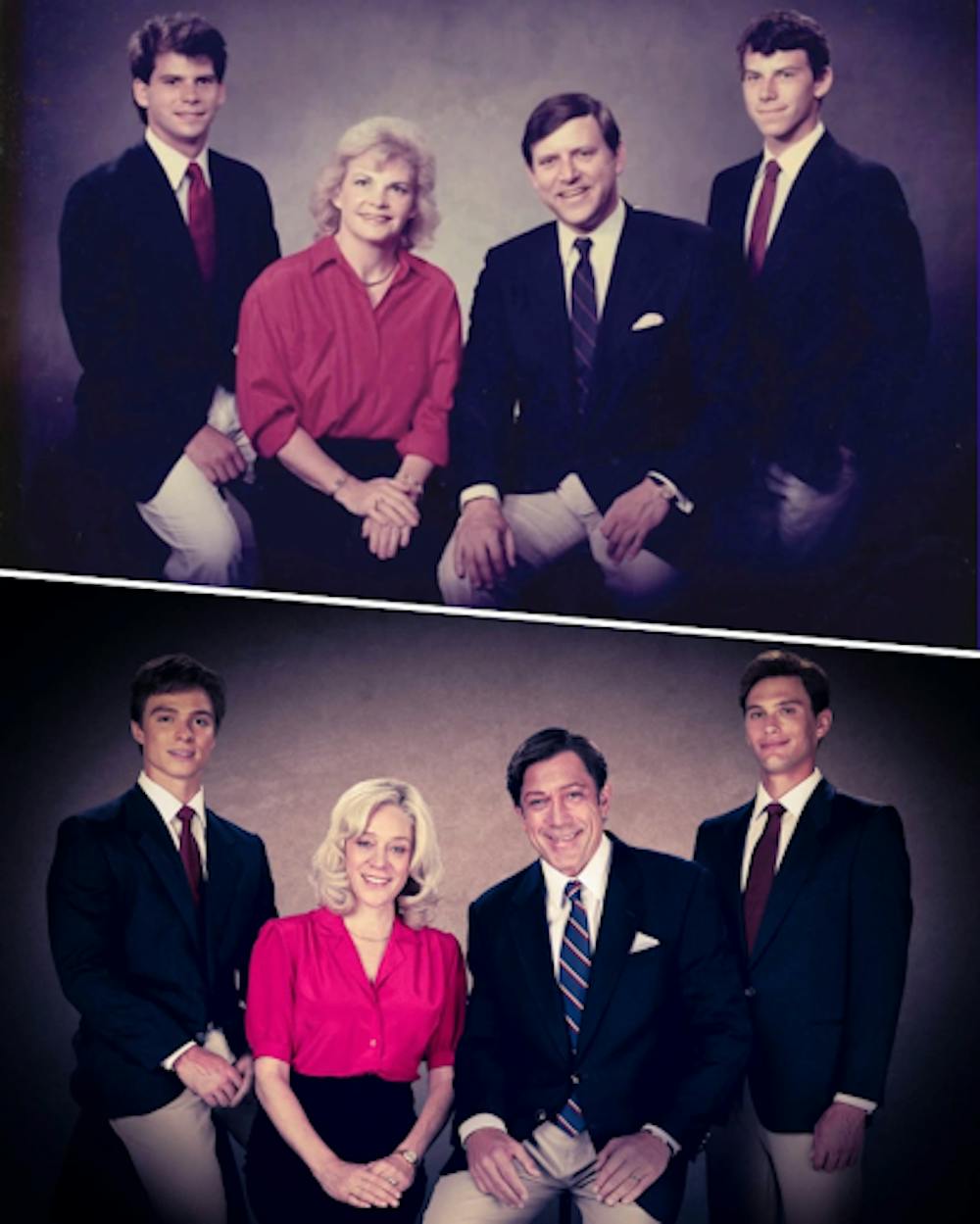Nearly 30 years after Lyle and Erik Menendez were given multiple life sentences without the possibility of parole, Netflix’s back-to-back features about the notorious parricide case played an unexpected role in the recent recommendation for resentencing.
Director, writer and producer Ryan Murphy, an Indianapolis native himself, released the second rendition of his anthology series, “Monsters: The Lyle and Erik Menendez Story,” on Sept. 19, which instantaneously peaked as the No. 1 most-viewed show on Netflix–and remained at the top for the following two weeks. With its nostalgic, catchy soundtrack and a few familiar faces–Javier Bardem, Chloë Sevigny and Nathan Lane, to name a few–Murphy had the perfect recipe for an outstanding debut.
Murphy has a gift for storytelling and reaching young minds with his narratives. Not to mention, his excellence can be accredited with award-winning tv shows such as “Glee” and horror anthology, “American Horror Story,” but also more recently with a fascinating ability of turning the perverse persona of Jeffrey Dahmer into a misunderstood character in his first rendition of the biographical drama, “Monster: The Jeffrey Dahmer Story.”
Although, that’s not what he did with “Monsters: The Lyle and Erik Menendez Story.”
The show truly captures the viewers’ attention with its dramatic essence of storytelling. However, by no fault of the two incredible performances from Nicholas Chavez as Lyle and Cooper Koch as Erik, it also makes a mockery of the vile reality of the overarching Menendez family history.
With its fictitious, albeit slightly captivating, nature from the start, Murphy’s take on the matter manufactures a paradox that allows the audience to enjoy the true-crime drama without understanding what it means for the present-day livelihood of Lyle and Erik.
On Oct. 24, the Los Angeles District Attorney’s office suggested the Menendez’s case be retried.
Call it a coincidence, but without the outpouring of discourse on social media targeting Murphy’s insensitive and fictionalized version of the truth, there is a high likelihood the once unmovable verdict from 1996 would have remained overlooked. Over the 30 years that the brothers have been incarcerated, and the start of a new generation, a completely fresh set of opinions has been vital to the endurance of this case.
Coated in nearly two decades of revolting behavior that the parents invoked on their adolescent sons, the Menendez family was destined for doom.
Often the dominant focus in the details of the Menendez family, the boys’ father, José Menendez, was an indisputable monster who exploited the naivete of his children, but in Murphy’s adaptation, the viewers become unnervingly accustomed to the deeply-rooted poison planted by their mother throughout their lives.
Resentment is a strong, bitter emotion, and Kitty Menendez had the most potent taste of all.
Despite Lyle and Erik’s adamant arguments of their mother’s demise being a merciful act, the truth of the matter betrays them; Kitty was neither innocent nor ignorant to their father’s extracurricular activities–she was something else entirely. She was complacent.
Only, Murphy insinuates with his storyline that the abuse within the Menendez home went both ways–from parents to sons and vice versa.
Murphy’s nine-part series is not the only Menendez-related docu-series that Netflix had planned for release in 2024.
Roughly three weeks after Murphy’s adaptation hit Netflix–and after social media users had expressed significant discontentment in the portrayal of the Menendez Brothers in Murphy's retelling, Alejandro Hartmann’s “The Menendez Brothers” documentary aired on Oct. 7.
In contrast to Murphy’s semi-fictional show, which notably lacked any endorsement from the Menendez Brothers, Hartmann’s 116-minute documentary presented a direct line of communication from the brothers, their family and other important figures from the two trials. Hartmann’s collaboration with Lyle and Erik for his piece is a stark juxtaposition to the animosity the Brothers have for Murphy’s misleading narrative.
Opening at almost the exact same point in their lives as Murphy’s TV show did, the documentary unravels the falsities present in Murphy’s show with honest, heart-wrenching statements from the previous testifiers, the prosecution and the Menendez Brothers themselves. Hartmann walks the viewers through the draining, dragging defense as if they were the litigant on trial–constructing a new narrative to trust despite the provoking story Murphy produced.
When viewed simultaneously, the drastically different motives from Murphy and Hartmann for these spectacles are not only thought-provoking and enthralling, but they also inspire inquiry from the viewers to study why this case has withstood the test of time.
Ruby Olston (she/her) is a junior majoring in Sports Journalism. Outside of writing, Ruby loves to thrift a new wardrobe, watch Formula 1, and treat herself to overpriced coffee.





